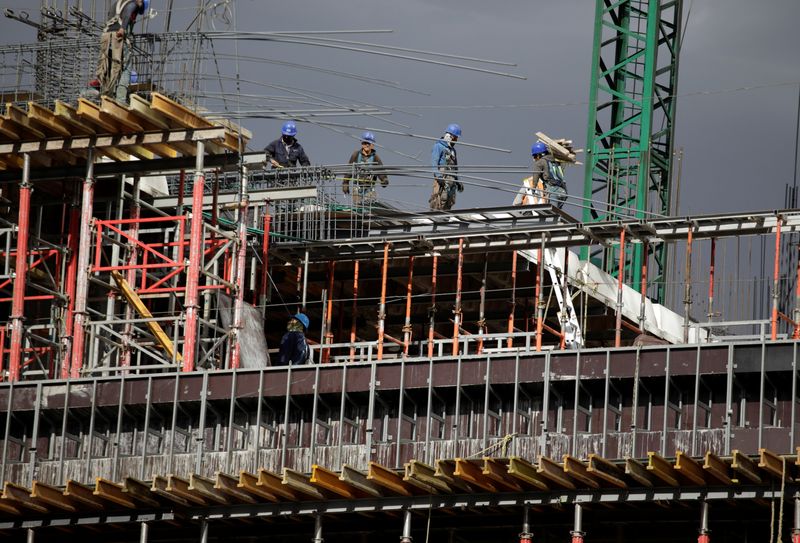By Dave Graham (NYSE:GHM)
MEXICO CITY (Reuters) -Mexico's economy last year suffered its biggest annual contraction since the 1930s, although it recovered better than expected from the ravages of the COVID-19 pandemic during the final quarter, preliminary data showed on Friday.
Gross domestic product in Latin America's second-biggest economy tumbled by 8.5% last year in seasonally adjusted terms, according to the preliminary estimate issued by national statistics agency INEGI. The fall was slightly shallower than the consensus forecast in a Reuters poll for an 8.8% decline.
Still, the contraction was the sharpest since 1932 during the Great Depression, data published by the National Autonomous University of Mexico (UNAM) show. And the economy has recently faced fresh headwinds due to a resurgence in COVID-19 cases.
During the second half of 2020, the economy made up much of the ground lost to the pandemic, and an unexpectedly robust performance in the October-December period helped lift the peso against the dollar early on Friday.
But the economy remains a major challenge for President Andres Manuel Lopez Obrador, whose efforts to strengthen the state's hand in the energy market have led to disputes with businesses and upset Mexico's allies, chilling investment.
The second quarter bore the brunt of economic disruptions caused by the pandemic, before a sharp increase in infections towards the end of 2020 led to renewed commercial restrictions in the Mexico City metropolitan area before Christmas.
That is expected to dent the recovery in early 2021, which has seen deaths from coronavirus hitting record levels. Lopez Obrador himself contracted COVID-19 this month.
During the final three months of 2020, GDP advanced by 3.1% from the previous quarter in adjusted terms, beating the prediction for 2.8% growth seen in a Reuters poll.
Nikhil Sanghani, an economist at Capital Economics, said the figures for the fourth quarter meant that Mexico had recouped more than 70% of its losses from the first half of 2020.
"However, the recent surge in new COVID-19 cases will cause the recovery to grind to a halt in Q1," he said.
A breakdown of the unadjusted 2020 GDP figures showed manufacturing took the biggest hit last year. Secondary activities, which encompass factory output, fell by 10%, while tertiary activities, which include services, declined by 7.7%.
By contrast, primary activities such as farming, fishing and forestry, rose by 2.0% from 2019, the data showed.
The latest data also showed that 2020 was the second year running in which the economy went backwards. In 2019, the economy shrank by 0.1% in unadjusted terms, INEGI said.
Manufacturing activity has bounced back quickly from the depths of the slump, but companies are still wary about investing in new factories, buildings and machinery.
In the ten months through October, which is the latest data available, gross fixed investment was down by 19.5% compared with the same period in 2019, INEGI data show.

Goldman Sachs (NYSE:GS) economist Alberto Ramos said in a client note that the outlook remained challenging for Mexico, though the rollout of a vaccination program would help the recovery.
"Firmer U.S. growth, stronger terms of trade, and additional moderate monetary policy easing should leverage the recovery," Ramos said. "With the better than expected fourth quarter 2020 print we now expect real GDP growth to firm to 4.0% in 2021."